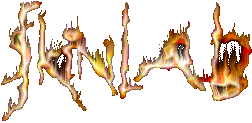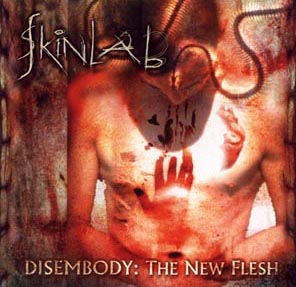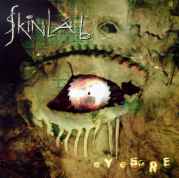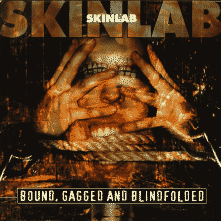

|
|
|
|



Being from the Bay Area, it should come as no surprise that Skinlab shares an affinity with fellow stalwarts Machine Head that extends beyond the merely geographical. In fact, if I were to define the Skinlab sound, I would dub it a sludgy Machine Head. However, where the latter tends to work much more with rhythm and tempo shifts - slipping from low into second into high any number of times throughout the course of any given song - Skinlab is more into slowing things down and keeping it that way, trudging through the darkest recesses of the psyche, making sure to leave no nook or cranny unexamined. After all, therapy should be an act of cleansing, and seldom does it occur in a rushed, haphazard fashion.
For this reason, I would (loosely) dub this a concept album, a harrowing glimpse at the journey all emotionally scarred must undergo if it is their desire to heal their wounds. The band opens the opening track, "When Pain Comes to Surface," with the question, "What does it take to be a man?" It's a significant question since the remainder of the album seems to be a last ditch effort to answer just that. The second track, "Dissolve," is my personal favorite, for not only does Esquivel reveal the source of his anger - "What kind of father were you?" - but he also reveals the first step in ridding oneself of the psychical baggage that comes with a father figure's absence - to dissolve. In other words, it is the shedding of an identity constructed out of a lack of a father and the subsequent reconstruction of a new identity from those qualities that have sustained him during that absence. (Uh oh. I'm getting phychoanalytic on your asses.)
And so it goes. While I do recognize that the following seven tracks seem to lyrically sift through the emotional wreckage, I don't want to go without saying the following: this is actually a very inspiring album. Even the album's closer, "Ten Seconds," the final lamentations of a person on the verge of suicide, seems like more of a crossroads than a dead end, much like the twisted inspiration that underlies and sustains Metallica's suicide anthem, "Fade to Black." To state it slightly differently, Esquivel's "everyman" will inevitably face the allure of suicide, but the truly strong realize that it is merely one option available to them.
So what else can I say? If you're in the mood for some painful soul searching accompanied by a soundtrack that tends to fall musically between Machine Head and early Sepultura, then by all means pick this up. It is a powerful and emotionally draining debut (which is a good thing). I think you will latch onto it as I have, even if your childhood wasn't too terribly fucked up.
